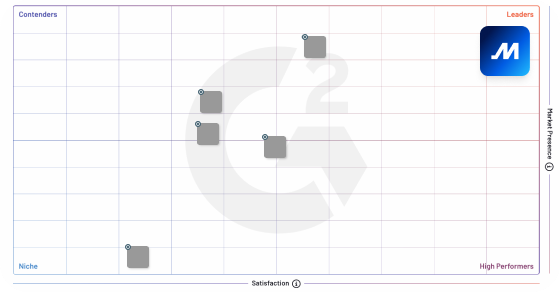There are some businesses that still consider the ELD mandate a burden and have unanswered ELD mandate questions. However, there are many companies that are ecstatic about transitioning to ELDs because they understand how beneficial it is going to be for them.
The ELD mandate is going to make lives easier for motor carriers. It’s going to streamline operations, reduce paperwork and tiresome administrative tasks, minimize expenses, and maximize profits for trucking companies.
The FMCSA estimates that the upcoming ELD mandate will save the trucking industry approximately $1 billion per year. There are so many benefits of ELDs that fleets that are exempt are also implementing these devices.
But, as mentioned earlier, there is still some confusion out there.
In this blog post, we try to eliminate that confusion as much as possible. Some carriers are still not 100 percent clear about the ELD mandate and the various benefits it brings, so we decided to put all the most commonly asked ELD mandate questions in one place.
10 common ELD mandate questions (and their answers) asked by carriers about ELDs and the ELD mandate.
1. How can ELDs help carriers get better CSA scores?
The ELD mandate will help carriers avoid most Hours of Service violations. Form & Manner violations, outdated logs violations, and falsified log violations are some of the most common ones that ELDs would be able to completely eliminate.
Apart from these, ELDs notify drivers with alerts for upcoming HOS violations. Therefore, drivers can be fully aware of their Hours of Service limits and the exact time they need to stop driving.
According to an FMCSA report, vehicles with ELDs experience 53 percent fewer HOS violations. And, as you know, fewer HOS violations result in a better CSA score.
Related reading: 6 Simple Secrets to Improve Your CSA Score.
2. How can ELDs help carriers get more customers?
In most cases, your prospective customers will do their homework first before they decide to work with you. One of the aspects that they’d most certainly consider is carrier safety.
They can easily go into FMCSA’s SAFER system, search your trucking company, and view your current safety status. The program can show a company’s out-of-service percentage and crash results for the past two years.
It also shows a carrier’s current safety rating.
If your company holds an unpleasant safety record in FMCSA’s system, your prospective customers will most likely avoid working with you. What’s worse, they might even tell others to avoid your company. A bad impression can go a long way.
When you’re using ELDs, however, your company profile will look better in FMCSA’s records.
Because using ELDs can help you avoid road crashes and violations (among other things), you’ll get a better carrier safety rating. This, in turn, can influence your prospective customers to pull the trigger and decide to work with you.
According to an FMCSA study, vehicles with ELDs experience 11.9 percent fewer road accidents, which shows that ELDs directly improve the safety of your fleets and commercial drivers.
3. How can ELDs help carriers avoid paying penalties?
Drivers who are still using paper for RODS can falsify their data whenever they exceed their driving hours. Some falsify the data to avoid paying the mandated fines for HOS violations. The paper RODS are passed to carriers, which submit them to FMCSA.
According to FMCSA, carriers are held equally liable as the drivers for falsified documents. This liability includes accepting fraudulent documents from the drivers and submitting them to the FMCSA.
Submitting falsified records to FMCSA could reach up to $2,750 for each day the violation continues. If left unchecked, these fines can add up to an amount that can be financially dangerous to a trucking company’s success.
With the use of ELDs, however, carriers can avoid these penalties.
ELDs not only automate the process of tracking a driver’s RODS, but are also mandated by law to be tamper resistant. This drastically lowers the possibility of a company sending falsified data to FMCSA.
4. How can ELDs help improve a truck driver’s working environment?
One of the biggest problems that management often faces is the high driver turnover rate. The problem is so serious that the FMCSA makes mention of the driver shortage dilemma that the industry is struggling with.
Research shows that one of the reasons why drivers leave is because they aren’t satisfied with their working environment. They experience too many responsibilities while under regulations that they may not like completely.
ELDs can help eliminate some of the unwanted stress that drivers face.
There are several ways an ELD can do this:
- With features such as GPS tracking, drivers can plan their routes more efficiently and avoid congested traffic areas
- ELDs alert drivers for upcoming HOS violations, which means drivers can focus on driving and stop worrying about breaching their HOS limits
- Additionally, with ELDs installed, drivers will no longer have to worry about manually recording their Hours of Service; ELDs will do it for them
- Since the entire purpose of ELDs is to eliminate driver fatigue and improve safety, drivers will also have fewer accidents.
5. How can ELDs help trucking companies make more money?
ELDs can have a direct impact on the profitability of your company.
Most modern ELD solutions are packed with amazing features, such as GPS tracking, automated IFTA calculation, etc. that reduce administrative work and automate tiresome processes. Using these features, carriers can instantly bring down their operational costs.
Additionally, features such as idle-time tracking can help carriers avoid fuel wastage and reduce operational costs even more. By using other features such as driver scorecards, carriers can identify drivers with bad driving behaviors and fix any possible issues that may lead to accidents and hefty fines. Furthermore, now ELDs are also capable of detecting fault-code alerts and notifying drivers and fleet managers in time. Moreover, by using historical fault code reports, you can also identify recurring vehicle issues in time.
All these features directly streamline operations, minimize expenses, and maximize profits.
6. How can ELDs lower a trucking company’s fuel costs?
According to the U.S. Department of Energy, idle trucks can consume up to a gallon of fuel per hour. This may be problematic for large-scale trucking companies with hundreds and thousands of vehicles.
According to another estimate, for a truck that consumes $70,000 of fuel per year, approximately $5,600 is spent on idling. ELDs can help you identify which vehicles are idling, so you can stop wasting fuel and save valuable resources.
Some ELDs come with an idle-time tracking and monitoring feature. Those ELDs can track and identify the idle trucks in your fleet, how long the trucks have been idle, and their locations. You can use this data to identify which drivers in your company are often responsible for excessive idle time.
Once you’ve pinpointed who the drivers are, you can then gather them together and coach them on techniques to avoid idling. Doing this will allow your business to cut costs and lower your fuel expenses in the long term.
7. Will ELDs impact the longevity of our vehicles?
ELDs connect to the engine of the vehicles. This connectivity allows them to monitor and track any potential faults. Additionally, some ELDs (like Motive ELDs) can also help identify recurring issues with the help of historical fault code reports.
It ensures that you’re always on top of vehicle maintenance, which positively impacts the longevity and maintenance of vehicles in your fleets.
8. How can ELDs help in case of accidents?
According to the FMCSA, there were 415,000 truck crashes in the year 2015.
For company owners, these crashes can translate into financial penalties and danger for drivers.
An FMCSA analysis of crash causation shows that driver fatigue is one of the biggest reasons for road accidents. To counter that, FMCSA introduced hours of service.
Drivers who maintain paper logs may try to falsify their logs and drive beyond their HOS limits. However, as ELDs are connected directly to the engine of the vehicle and track vehicle movements, e-logs cannot be tampered with.
This automation by ELDs ensures that no driver drives beyond their HOS limits, which means no fatigued driving and fewer accidents.
Additionally, in a case of accidents, ELD data can be gathered and presented as evidence in courts. If it wasn’t your driver’s fault, that ELD data could save you thousands of dollars in fines and penalties.
9. Can ELDs improve a carrier’s safety ratings?
FMCSA regulations mandate the monitoring of a carrier’s safety conditions in its operations. Under the CSA program, carriers are given safety ratings by the FMCSA based on compliance with established safety standards.
A number of factors determine how the company’s evaluation is being rated. Some of the rating factors established by the FMCSA include unsafe driving and the driver’s HOS compliance.
Every time a driver commits a safety violation, the carrier’s safety rating would drop.
If the evaluation score drops below a certain threshold, motor carriers would be given an “unsatisfactory” safety rating.
The FMCSA regulations prohibit carriers with unsatisfactory ratings from operating their trucks in interstate commerce. This ban can deal massive operating losses to the company that may even put them out of business.
All of this can be avoided with the use of ELDs.
With the ELD’s tracking and monitoring features, HOS violations can be completely eliminated. Strictly following hours-of-service rules also reduces the number of crashes and accidents, which has a positive impact on the carrier’s safety scores.
Also, some ELDs come with a “driver scorecard” feature.
In this feature, ELDs can monitor and identify bad driving habits, such as hard braking, hard acceleration, and hard cornering. By using this data, fleet managers can train some drivers with risky driving behaviors. Moreover, rewards can also be given to drivers with the best scores to encourage positive influence and competition within the organization.
Once you identify drivers with bad driving behaviors and train them, your fleet’s safety will improve significantly. Safe driving would result in little to no violations from the FMCSA. Also, you’d be experiencing fewer crashes and road accidents.
10. How can ELDs help carriers improve their service?
As mentioned earlier, ELDs help carriers streamline operations, eliminate repetitive and tiresome administrative tasks, and improve overall efficiency.
The GPS tracking feature eliminates the need for constant phone calls between fleet managers and commercial drivers to get location updates. With everything being recorded electronically, your company can let go of tons of paperwork.
Features such as automated IFTA calculation can save your company hundreds of hours and thousands of dollars at least four times in a year. With idle time tracking, you’d be able to save thousands of dollars of fuel every year. With driver scorecards, you can help your commercial drivers improve and increase your fleet’s safety. And with vehicle diagnostic reports, you can make sure that each vehicle in your fleet is in top-notch condition.
When you combine all these benefits, you get a first-class level of service to offer to your customers. With extra safe drivers, vehicles in perfect condition, efficient route management, and constant location updates, you can offer to your customers what many of your competitors can only dream of.
The Motive ELD solution
ELD solutions are packed with amazing features that can transform the way a carrier does its business. But even if we put all these wonderful goodies aside for a moment, the ELD mandate deadline is sprinting toward us.
It’s only a few months away, and you need to start implementing ELDs right now.
The Motive ELD solution has all the features (and more) that we just highlighted in this blog post. Our ELD is FMCSA-compliant and is loved by thousands of fleets all over America.
Request a free demo now and experience a revolutionary fleet management system that guarantees compliance with the FMCSA.
If you have any ELD mandate questions, give us a call at 855-434-3465.









